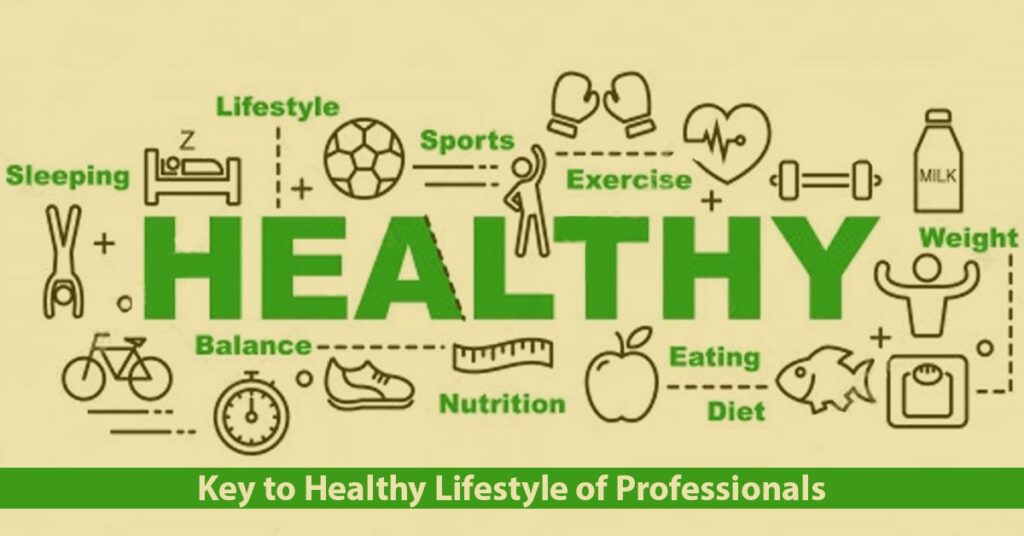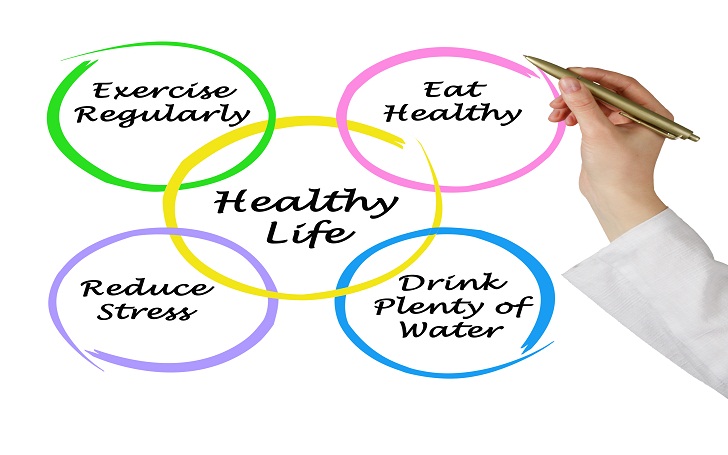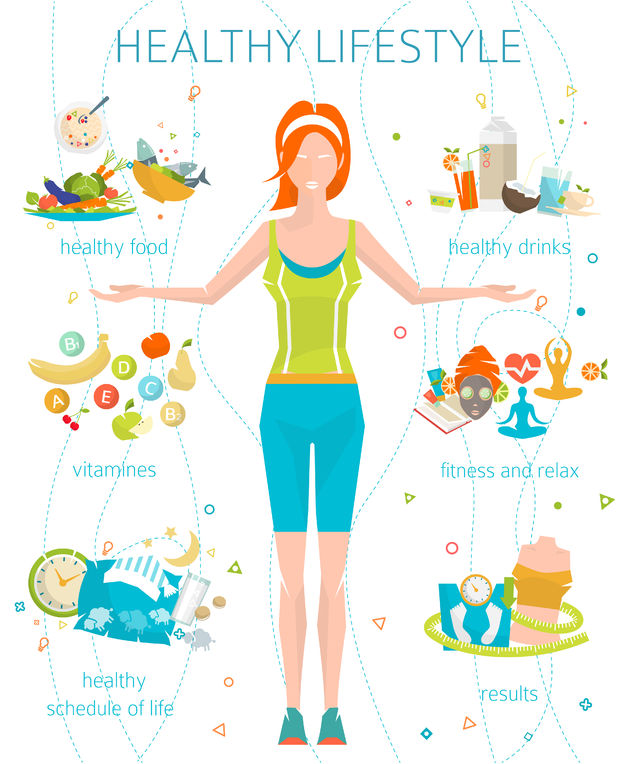You know how important it is to take care of yourself and live a healthy life, but sometimes it can be confusing to understand what exactly constitutes a healthy lifestyle. Well, look no further! In this article, we will explore the key elements that make up a healthy lifestyle and provide you with practical tips on how to incorporate them into your daily routine. So, buckle up and get ready to embark on a journey towards a healthier and happier you! A healthy lifestyle refers to a set of habits and choices that prioritize your overall well-being. It encompasses various aspects of your life, including physical activity, nutrition, sleep, stress management, hydration, avoidance of harmful substances, routine health check-ups, social connections, work-life balance, and self-care. Adopting a healthy lifestyle is essential for maintaining optimal physical, mental, and emotional health. By making conscious choices and incorporating healthy habits into your daily routine, you can significantly improve your quality of life and longevity. Let’s explore each component of a healthy lifestyle in more detail.

This image is property of lamvascular.com.
Physical Activity
Physical activity plays a crucial role in maintaining a healthy lifestyle. Regular exercise has numerous benefits for your body, mind, and overall well-being. It helps to strengthen your muscles and bones, improve cardiovascular health, boost your immune system, and enhance your mood. Engaging in physical activities such as walking, jogging, cycling, swimming, or participating in sports can contribute to weight management and reduce the risk of developing chronic diseases like heart disease, diabetes, and certain types of cancer. Aim for at least 150 minutes of moderate-intensity exercise or 75 minutes of vigorous-intensity exercise each week, and remember to choose activities that you enjoy to make it a sustainable practice.
Nutrition
Proper nutrition is another vital component of a healthy lifestyle. Fueling your body with a balanced and nutritious diet provides the necessary nutrients and energy for optimal functioning. Emphasize the consumption of whole foods such as fruits, vegetables, whole grains, lean proteins, and healthy fats. Limit the intake of processed foods, sugary drinks, and high-fat snacks, as they are typically low in nutrients and high in calories. Maintaining a balanced diet can help control weight, prevent chronic diseases, boost your immune system, and promote overall health and longevity. Consult a healthcare professional or a registered dietitian for personalized dietary recommendations based on your specific needs and goals.
This image is property of media.defense.gov.
Sleep
Adequate sleep is often underestimated but is crucial for both physical and mental well-being. It is during sleep that our bodies repair and rejuvenate. Lack of sleep or poor quality sleep can lead to various health issues, including obesity, weakened immune system, mood disturbances, impaired cognitive function, and an increased risk of chronic diseases. Aim for seven to nine hours of quality sleep each night. Establish a regular sleep schedule, create a calming bedtime routine, and ensure a comfortable sleep environment by keeping your bedroom cool, dark, and quiet. Prioritize sleep as an essential part of your daily routine to reap its benefits.
Stress Management
Stress is a normal part of life, but excessive and prolonged stress can negatively impact your health. Learning effective stress management techniques is crucial to maintaining a healthy lifestyle. Engaging in activities that help you relax and unwind, such as meditation, deep breathing exercises, yoga, or engaging in hobbies, can reduce stress levels. Regular physical activity can also help alleviate stress by releasing endorphins, the “feel-good” hormones. Additionally, fostering healthy coping mechanisms, such as maintaining a positive mindset, seeking support from loved ones, and managing time effectively, can significantly mitigate the negative effects of stress on your health.

This image is property of blogs.dpuerp.in.
Hydration
Staying hydrated is fundamental for maintaining optimal health. Water is essential for various bodily functions, including regulating body temperature, transporting nutrients, lubricating joints, flushing out toxins, and supporting digestion. Aim to consume at least eight glasses of water per day, or more if you are physically active or in a hot climate. Along with water, you can also hydrate through beverages such as herbal teas and low-sugar fruit juices. Avoid excessive consumption of sugary drinks and beverages high in caffeine, as they can lead to dehydration. Carry a water bottle with you, set reminders throughout the day, and listen to your body’s signals of thirst to ensure proper hydration.
Avoidance of Harmful Substances
A key aspect of a healthy lifestyle is avoiding harmful substances, such as tobacco, alcohol, and illicit drugs. These substances can have detrimental effects on your physical and mental health. Smoking is a leading cause of preventable diseases, including lung cancer, heart disease, and respiratory problems. Excessive alcohol consumption can lead to liver damage, cardiovascular issues, and addiction. Illicit drugs can have severe consequences on your overall well-being, ranging from addiction to severe health complications. Choose to live a substance-free life, and seek support if you need help overcoming addiction or dependence.

This image is property of www.citizen.co.za.
Routine Health Check-ups
Regular health check-ups are essential for maintaining and monitoring your overall health. Schedule routine visits with your healthcare provider to assess your physical well-being, identify any potential health issues, and receive appropriate preventive care. These check-ups typically include measurements of blood pressure, cholesterol levels, and body mass index (BMI). It is also an opportunity to discuss any concerns or symptoms you may have and receive guidance on maintaining a healthy lifestyle. Stay up-to-date with vaccinations, screenings, and recommended health screenings for your age group and gender.
Social Connections
Maintaining strong social connections is vital for emotional well-being and overall happiness. Cultivating healthy relationships, both with friends and family, provides a sense of belonging and support. Engage in activities that allow you to connect with others, such as joining clubs, volunteering, or participating in group hobbies. Schedule regular time with loved ones, practice active listening, and be attentive to their needs. Nurturing social connections can contribute to reduced stress levels, increased self-esteem, improved mental health, and a stronger support system to lean on during challenging times.

This image is property of lorieeberwellnesscoaching.com.
Work-Life Balance
Achieving a healthy work-life balance is essential for your mental and physical well-being. Strive to create boundaries between work and personal life by setting clear schedules and priorities. Allocate time for relaxation, hobbies, and spending quality time with loved ones. Avoid overworking and develop strategies to manage stress related to work, such as delegating tasks, practicing time management, and not being afraid to ask for help when needed. Remember, a healthy work-life balance allows you to recharge, maintain productivity, and enjoy life outside of work.
Self-care
Self-care involves prioritizing your own well-being and taking intentional actions to care for your physical, mental, and emotional health. It can involve activities such as practicing mindfulness, engaging in hobbies, pampering yourself with a bubble bath or massage, reading a book, or simply taking breaks when needed. Self-care is not selfish but rather a necessary practice to replenish your energy, reduce stress, and promote overall happiness. Identify what activities bring you joy and relaxation, and make them a regular part of your routine, ensuring that you carve out time specifically for self-care.
In conclusion, a healthy lifestyle encompasses various components that contribute to overall well-being. By incorporating regular physical activity, maintaining proper nutrition, prioritizing sleep, managing stress, staying hydrated, avoiding harmful substances, scheduling routine health check-ups, nurturing social connections, achieving work-life balance, and practicing self-care, you can take control of your health and lead a fulfilling life. Remember, adopting a healthy lifestyle is a journey, and small changes made consistently can have a substantial impact on your overall well-being. Prioritize your health, listen to your body’s needs, and make conscious choices to support a healthy and vibrant life.

